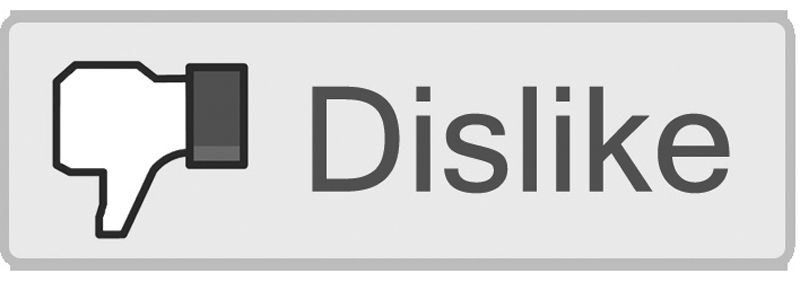
“Hate” is such a strong verb – I much rather prefer the term “dislike.” To hate something is to have a burning desire to end it. To hate is to believe something is so heinous, so atrocious, that it should be obliterated from the face of the earth. To dislike something is – well – to simply not like it. It is to prefer something else, to be aware of your preference and to get on with your life. Dislike is essentially hate without the emotional baggage, without the commitment. You can dislike blue lollipops, but do you hate blue lollipops? Do you really want to obliterate blue lollipops from the face of the earth?
Now, I’m not childish. I know that not everything in this world is comparable to blue lollipops. I am completely aware that some things may be worth hating – worth wiping off the face of the earth. I am also aware, however, that these things have long been conceptualized and spoken out against by numerous others who came before me. Feminists hated the patriarchy. Margaret Sanger hated babies. Karl Marx hated the church. Socrates hated lies. Capitalists hate the poor. The list goes on, but the point is the same: these things aren’t mine to hate. Are they worth hating? Perhaps. But in hating these so-called issues – these issues bigger than blue lollipops, which we are taught to hate by someone else – we overlook a massively critical component of the equation.
There is a major glitch in this system of hate. Of course, there tends to be glitches in all man-made systems, so I suppose we should have seen this one coming. This glitch, however, is particularly unique because it is a rather large one. We hate something without taking into account where it comes from. We disregard its origin. We overlook both nature and nurture, and we hate the thing in and of itself. We forget that someone is responsible for this hated item. Someone is responsible for racism. Someone is responsible for inequality. Someone is responsible for corruption.
The person responsible for these absolute abominations – these things, perhaps, worth hating and unworthy of simply disliking, is no other than man. Or woman. (We aren’t off the hook because of patriarchy, though that would be nice.) It is people, like you and I, who are responsible. We cause racism. We cause inequality. We cause corruption. There isn’t a single atrocity we suffer that wasn’t caused by our own hands. That being said, there also isn’t a single pleasantry we experience that is not also a result of our own actions. It is, of course, highly possible that we have done far more bad than good in the overarching scheme of things, but that is besides the point.
The point is that this entire system of hate – our acceptance and common usage of the word – essentially invalidates itself. Now that we’ve recognized that we are the ones responsible for the evils in our world, we’ve recognized that we are the ones worth hating. I’m not sure this is the best idea, though. I, for one, don’t want to obliterate humankind from the face of the earth.
I just merely dislike people.
Ahd Niazy is a College freshman from Jeddah, Saudi Arabia.
The Emory Wheel was founded in 1919 and is currently the only independent, student-run newspaper of Emory University. The Wheel publishes weekly on Wednesdays during the academic year, except during University holidays and scheduled publication intermissions.
The Wheel is financially and editorially independent from the University. All of its content is generated by the Wheel’s more than 100 student staff members and contributing writers, and its printing costs are covered by profits from self-generated advertising sales.





